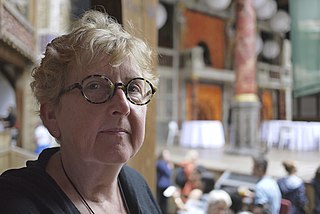A Quote by Yusef Komunyakaa
I like connecting the abstract to the concrete. There's a tension in that. I believe the reader or listener should be able to enter the poem as a participant. So I try to get past resolving poems.
Related Quotes
I feel like the older I get, the truer it feels that I'm only going have an investment in a poem if it allows or forces me to bring something that's supremely me onto the page. I used to think that the speaker of a poem was talking to someone else, to some ideal reader or listener, but now I think that speakers - poets - are talking to themselves. The poem allows you to pose questions that you have you ask of yourself knowing that they are unanswerable.
I feel like you are allowed in fiction to embrace imagination and try to enter other worlds. And I feel like you should push yourself to try to persuade your reader that you have the authority to engage with people who, you know, lived in the past, who live in the future, other genders, other places, other cultures.
I wanted to pack a lot into the lyric, but not go beyond its bounds. Some have written that I wanted to expand what the lyric could do. I just want the hugeness of experience-which includes philosophical discursiveness-to move at a rate of speed that kept it (because all within one unity of experience) emotional. Also, often, questions became the way the poems propelled themselves forward It brings the reader in as a listener to a confession[.] A poem is a private story, after all, no matter how apparently public. The reader is always overhearing a confession.
The poem is not, as someone put it, deflective of entry. But the real question is, 'What happens to the reader once he or she gets inside the poem?' That's the real question for me, is getting the reader into the poem and then taking the reader somewhere, because I think of poetry as a kind of form of travel writing.
I think you can perform any poem. But what I believe is that the best examples of spoken word poetry I've ever seen, are spoken word poems that, when you see them, you're aware of the fact they need to be performed. That there's something about that poem that you would not be able to understand if you were just reading it on a piece of paper.
I would read the Shel Silverstein poems, Dr. Seuss, and I noticed early on that poetry was something that just stuck in my head and I was replaying those rhymes and try to think of my own. In English, the only thing I wanted to do was poetry and all the other kids were like, "Oh, man. We have to write poems again?" and I would have a three-page long poem. I won a national poetry contest when I was in fourth grade for a poem called "Monster In My Closet.




































